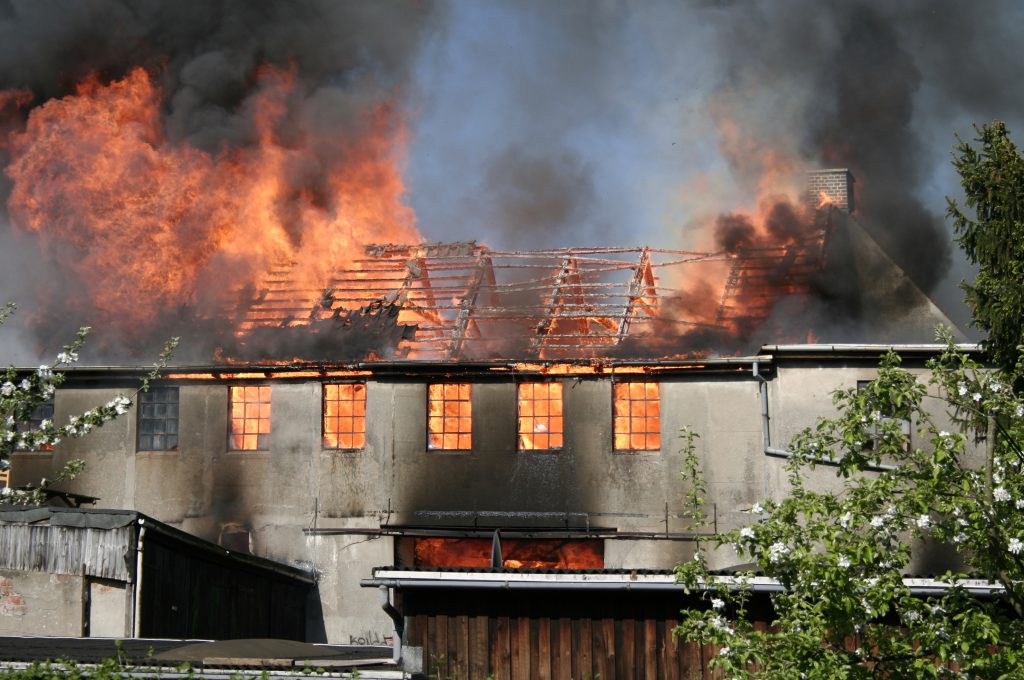 When a loved one dies from an avoidable accident, a family’s options for recovery include a wrongful death lawsuit. For this claim to succeed, a family often needs to prove that someone had a duty to protect the decedent but acted negligently in causing this death. For wrongful death lawsuits related to building fires, potentially negligent parties include those involved in preventing these disasters: building inspectors and fire marshals.
When a loved one dies from an avoidable accident, a family’s options for recovery include a wrongful death lawsuit. For this claim to succeed, a family often needs to prove that someone had a duty to protect the decedent but acted negligently in causing this death. For wrongful death lawsuits related to building fires, potentially negligent parties include those involved in preventing these disasters: building inspectors and fire marshals.
A fire at the Willow Creek Apartments in Grand Isle, LA on September 26, 2012 resulted in the deaths of two residents, Belle Brandle and Timothy Foret. One year later, Mr. Foret’s sisters, Sandra Hanson, Yvonne Grizzaffi, and Patricia Foret, brought a wrongful death lawsuit against the Office of the State Fire Marshal (“SFM”) and the inspector who inspected the apartments prior to the fire, Nunzio Marchiafava. Mr. Foret’s sisters argued that SFM and the inspector were negligent in responding to a resident’s fire hazard complaint. The trial court granted SFM and the inspector’s motion to dismiss in 2015; one of Mr. Foret’s sisters, Sandra Hanson, appealed.
Her argument hinged on the following four purported claims regarding SFM and the inspector: (1) they failed to investigate the report of a fire hazard, (2) they failed to advise the apartment owner of this hazard, (3) they failed to bring action against the apartment owner for this hazard, and (4) the inspector falsified his inspection report.
The Louisiana Fifth Circuit Court of Appeal dismissed the first claim on the grounds that the inspector actually did inspect Willow Creek Apartments in April 2012, approximately six months before the fire. The Court also dismissed the fourth claim even though the record showed that the inspector falsified a report that he inspected the premises a second time after the April 2012 inspection. The Court found that the inspector made this claim after the fire occurred, so while fraudulent, the falsified report had no effect on creating the fire.
Ms. Hanson’s remaining arguments centered on the claim that SFM and the inspector had a duty to inspect the apartment and take action; yet, due to their negligence, the fire occurred. In Louisiana, however, public entities are not held liable for the policymaking or discretionary acts of their employees. La. R.S. 9:2798.1. The Louisiana Supreme Court has recognized the important policy implications of this rule, since courts should not restrict the legislative process of creating policy by holding public entities responsible for employee actions. See Hardy v. Bowie, 744 So.2d 606, 613 (La. 1999). Accordingly, the Cour in the instant case determined that SFM and the inspector’s liability turned on whether their actions were discretionary in nature.
Under Louisiana law, a fire marshal does not conduct building inspections unless either requested by a local body or via a citizen’s complaint, at which point an inspection may, at the fire marshal’s option, be conducted. La. R.S. 40: 1563(C). The record showed that the inspector did contact the fire marshal regarding the building inspection; however, any further inspection by SFM and the inspector would have been purely discretionary. Because the inspection was discretionary, then there was no cause of action in this case and the Court affirmed the trial court’s dismissal of the lawsuit.
Despite the existence of possible further actions that SFM or the inspector could have taken to prevent the Willow Creek Apartments fire, SFM and the inspector had no duty to take them. Because Louisiana law shields agency employees from tort liability based on their discretionary actions, Mr. Floret’s family could not recover on a wrongful death claim.
Additional Sources: HANSON v. CARUSO
Additional Berniard Law Firm Articles on Wrongful Death and Civil Matters: Bastrop Fire Death Leads to Lawsuit; Lafayette Parish Sheriff Not Liable in Breach of Duty; Standing in Wrongful Death Cases: Who May Initiate a Lawsuit?
 Louisiana Personal Injury Lawyer Blog
Louisiana Personal Injury Lawyer Blog

